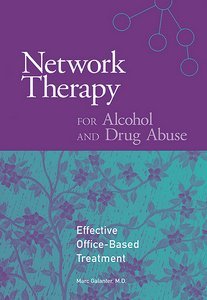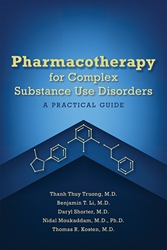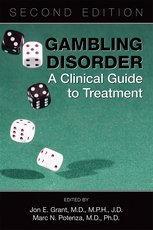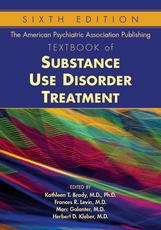Network Therapy for Alcohol and Drug Abuse
Effective Office-Based Treatment
View Pricing
Description
Treatment of substance abuse is challenging for all involved—for addicted patients, those close to them, and the treating therapists.
This informative video shows how a therapist complements individual sessions with supportive meetings with the patient, family, and friends to surmount major obstacles to recovery. The video portrays reenacted therapy sessions using transcripts from actual sessions with a patient—showing how the real process of recovery can begin and be sustained. Each session with the patient, his family, and friends (all portrayed by actors) is followed by a discussion of salient points with Dr. Galanter. Seasoned with practical advice from Dr. Galanter's years of experience in the field, the companion booklet provides a concise, indispensable guide to this therapy model.
Network therapy is a multimodal approach to office-based rehabilitation in which specific family members and friends are enlisted to provide ongoing support and promote attitude change. The network complements individual or group therapy and Alcoholics Anonymous.
Therapy sessions on video show how the network accomplishes three critical tasks:
- Maintaining abstinence—Abstinence is secured at the earliest possible time and maintained throughout therapy. The network offers a safe place with trusted family and friends who help the patient stay in therapy and avoid cues that can lead to relapse.
- Caring for the network—A unique therapeutic instrument, the network stays involved in the patient's coping skills, offering common sense and a positive team attitude. The therapist helps maintain continuity (e.g., sets and helps the patient enforce explicit meeting times) and the right atmosphere. Network members are part of the therapist's team and not subjects of treatment themselves.
- Securing future behavior—Network therapy structures the clinical situation to limit the possibility of relapse, with the therapist combining any and all modalities to ensure the patient's stability. A surprise revelation at the end turns out to be pivotal in stabilizing the patient's abstinence.
For easy reference, this helpful example of network therapy is accompanied by a table of contents with concepts listed by location on the video. Replete with practical insights and methods, this valuable video and companion booklet will benefit mental health care professionals, addiction specialists, and trainees alike.
Contents
- This tape presents a brief course on a treatment technique developed to bring addicted patients to successful recovery. Network therapy is a multimodal approach to rehabilitation in which specific family members and friends are enlisted to provide ongoing support and promote attitude change.
About the Authors
Marc Galanter, M.D., is Director of the Division of Alcoholism and Drug Abuse and Professor of Psychiatry at New York University Medical Center in New York, New York.
Related Products
Carousel Control - items will scroll by tabbing through them, otherwise arrows can be used to scroll one item at a time








